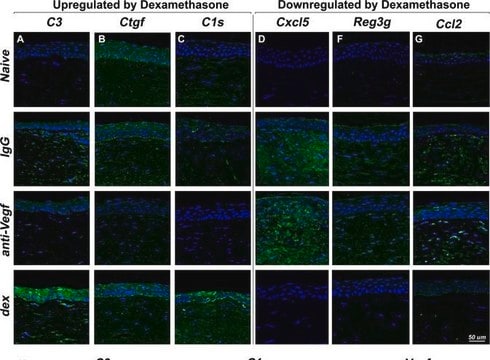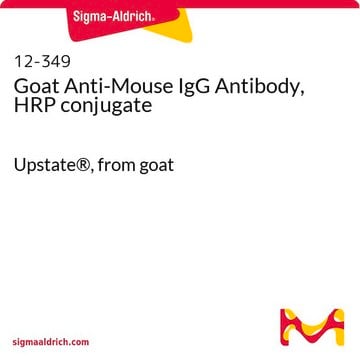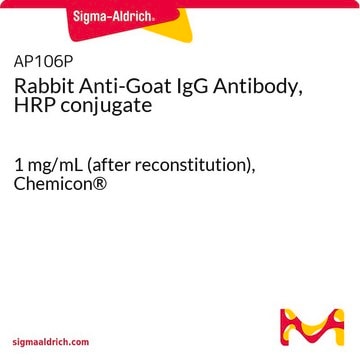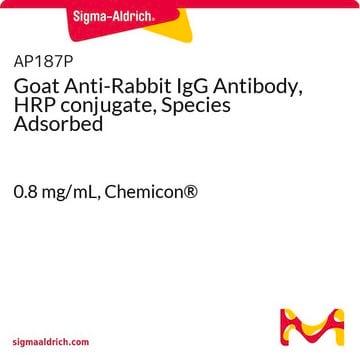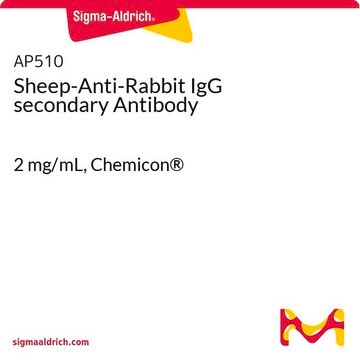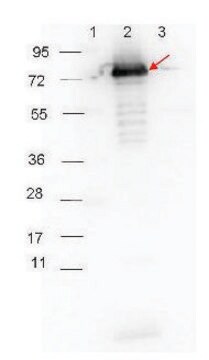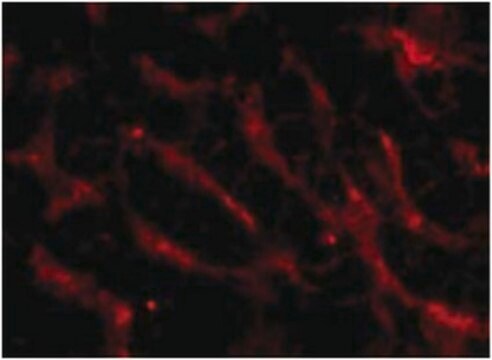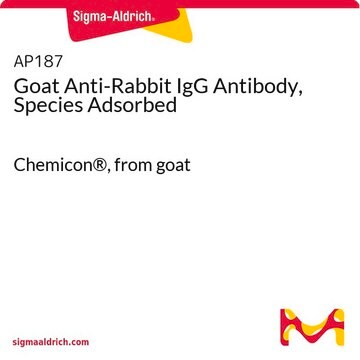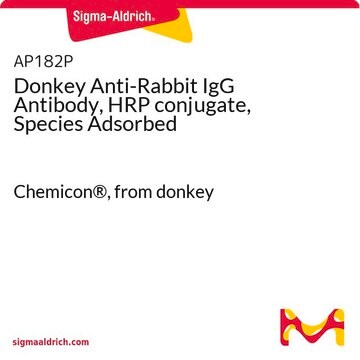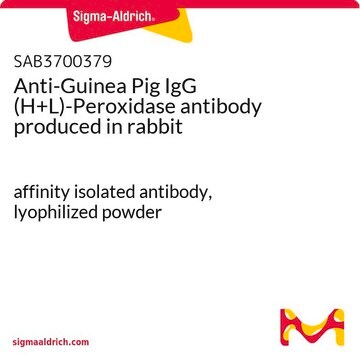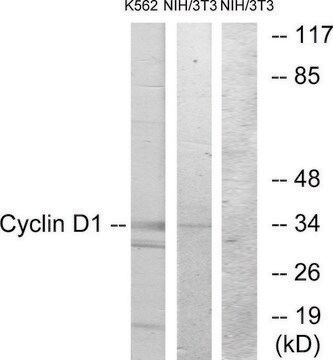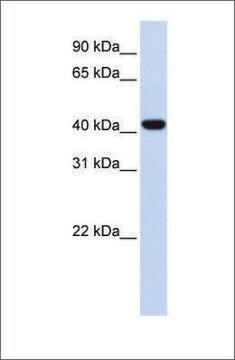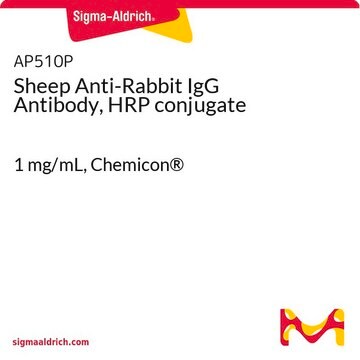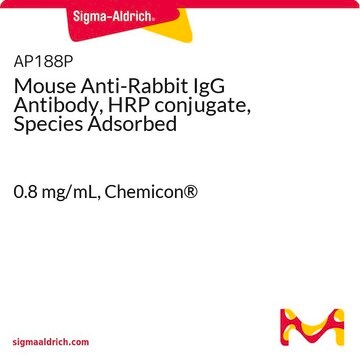AP307P
Goat Anti-Rabbit IgG Antibody, (H+L) HRP conjugate
1 mg/mL, Chemicon®
Synonym(s):
Anti-Rabbit IgG HRP
About This Item
Recommended Products
biological source
goat
Quality Level
conjugate
peroxidase conjugate
antibody form
affinity purified immunoglobulin
antibody product type
secondary antibodies
clone
polyclonal
species reactivity
rabbit
manufacturer/tradename
Chemicon®
concentration
1 mg/mL
technique(s)
ELISA: suitable
immunocytochemistry: suitable
immunohistochemistry: suitable
western blot: suitable
isotype
IgG
shipped in
wet ice
target post-translational modification
unmodified
Related Categories
General description
Specificity
Application
- immunohistochemistry (IHC)
- western blotting
- immunoprecipitation
Biochem/physiol Actions
Quality
1:200-1:500 dilution can be used (Coligan, J., 1997; Harlow, E., 1988).
Western Blot, chemiluminescent:
1:2,000-1:5,000 dilution can be used (Coligan, J., 1997).
Physical form
Storage and Stability
Legal Information
Disclaimer
Not finding the right product?
Try our Product Selector Tool.
Signal Word
Warning
Hazard Statements
Precautionary Statements
Hazard Classifications
Aquatic Chronic 2 - Eye Irrit. 2 - Skin Irrit. 2 - Skin Sens. 1
Storage Class Code
12 - Non Combustible Liquids
WGK
WGK 3
Flash Point(F)
Not applicable
Flash Point(C)
Not applicable
Certificates of Analysis (COA)
Search for Certificates of Analysis (COA) by entering the products Lot/Batch Number. Lot and Batch Numbers can be found on a product’s label following the words ‘Lot’ or ‘Batch’.
Already Own This Product?
Find documentation for the products that you have recently purchased in the Document Library.
Customers Also Viewed
Our team of scientists has experience in all areas of research including Life Science, Material Science, Chemical Synthesis, Chromatography, Analytical and many others.
Contact Technical Service

